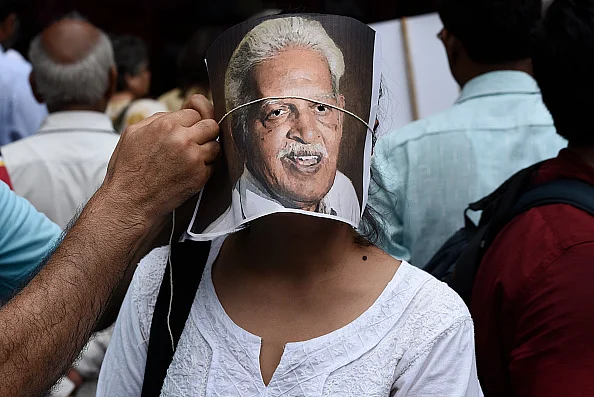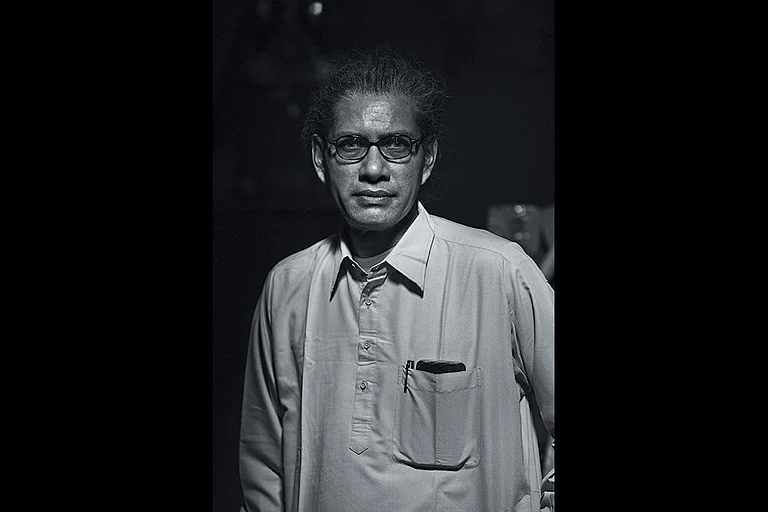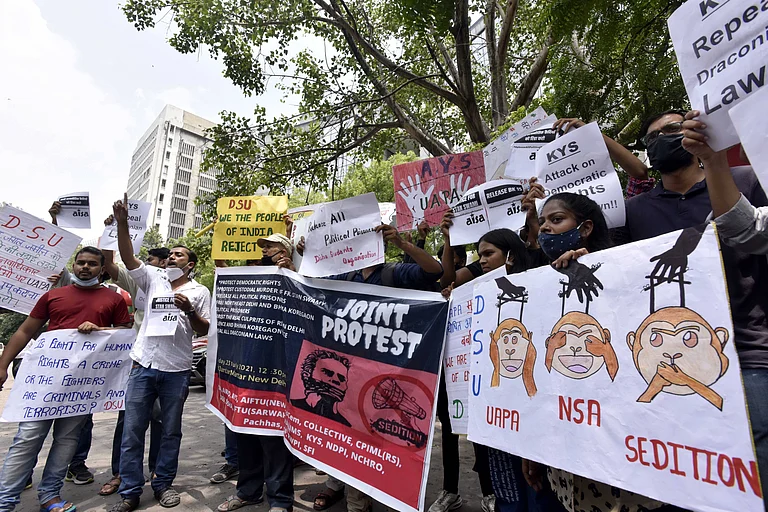A celebrated Booker Prize-winning author and human rights activist, Arundhati Roy became the latest target of India’s draconian law – Unlawful Activities (Prevention) Act, after Delhi’s Lieutenant General approved her prosecution on a complaint lodged 14 years ago. The approval comes days after Prime Minister Narendra Modi and his BJP-led NDA came to power for the third time. Human rights organisations have accused the government of misusing the law to silence critics.
Since 2014, at least 6,900 UAPA cases have been lodged until 2020, according to NCRB data. Reports by civil society organisations revealed that a very large number of people arrested under UAPA could not get bail, and yet were acquitted after being jailed for years.
The draconian law has also drawn criticism from several Supreme Court judges. However, it continues to be used against prominent writers, activists and journalists.
Varavara Rao
A poet, teacher, activist and writer, Varavara Rao was arrested in 2018 under the UAPA for his alleged involvement in the violence that took place in Bhima-Koregaon (Maharashtra) on January 1, 2018. The then Maharashtra police had alleged that 82-year-old Rao had links with Maoists and was involved in arms procurement. He was granted permanent bail by the Supreme court on medical grounds in 2022. The top court had then also observed the fact that charges are yet to be framed in the case – even though a charge sheet has been filed.
Stan Swamy
As part of the same Bhima Koregaon case, Father Stan Swamy was arrested under UAPA in October 2020. He was known for working to protect the rights of Adivasi peoples and Dalits, from his home in Ranchi. Swamy’s health had worsened considerably since he was held in judicial custody in Taloja jail. His requests for bail were repeatedly denied.
He was 83 years old at the time and was also suffering from Parkinson’s disease. Prison officials also reportedly denied him basic amenities, such as a straw and sipper, to help with his Parkinson's which rendered him almost immobile to perform basic functions. Swamy died in state custody in July 2021 reportedly from cardiac arrest following his contraction of COVID-19 in May that year. Swamy’s death threw up many questions on UAPA and prompted calls from activists for course correction.
Umar Khalid
Former student leader and activist Umar Khalid was arrested in 2020 under the UAPA in connection with a case related to the North-East Delhi communal violence that erupted in February that year. Hearings in the case have been rescheduled and postponed multiple times, with courts citing reasons like ‘paucity of time’ and ‘non-availability of the senior lawyers concerned’. Earlier this year, he withdrew his bail application from the Supreme Court.
Khurram Parvez
A Kashmiri human rights activist, Khurram Parvez has been accused of being in contact with individuals linked to a Pakistani terrorist group and faces multiple charges under several laws, including “criminal conspiracy”, “waging war against the government”, and “conspiracy to wage war against the government” under the India Penal Code, as well as for “raising funds for a terrorist act”, “conspiracy”, “recruitment of any person for a terrorist act” and “membership of a terrorist organisation” under the counter-terrorism law, according to Amnesty. While in jail, he was awarded the Martin Ennals Award, one of the world’s most prestigious human rights prizes, along with two other campaigners from Chad and Venezuela, with the jury hailing their “courage”.
Prabir Purkayastha
NewsClick founder and editor-in-chief Prabir Purkayastha was detained under UAPA charges in late 2023, for allegedly raising funds for terrorist activities and criminal conspiracy. The police report alleged the accused had received a “large amount” of Chinese funding to publish “paid news” criticising Indian government policies and “actively propagated false narratives to discredit the efforts of the Indian government to contain COVID-19 Pandemic.” The top court ordered his release from custody on 15 May, categorically stating that his arrest by the Delhi Police was “invalid in the eyes of the law,” since proper procedure had not been followed.
Asif Sultan
Kashmiri journalist Asif Sultan was incarcerated under UAPA and the Jammu and Kashmir Public Safety Act in August 2018 on accusations of providing logistical support to a banned militant group. A special court granted him bail in May 2024, noting that the police had arrested Sultan “without any reason or rhyme…he is innocent and has not committed any offence of whatsoever in nature”. The journalist had been facing incarceration for years “without any reasonable justification” as “evident from the circumstances” of the case and “how could a person commit a crime when he is already going through the detention and is a peaceful citizen,” the order further said.
Siddique Kappan
A freelancer contributing to multiple Malayalam news outlets, Siddique Kappan was arrested under UAPA in 2020 while reporting on a case involving the gang rape and killing of a young Dalit woman in Uttar Pradesh – Hathras rape case. He was accused of hatching a conspiracy to incite violence. After spending over 800 days behind bars, Kappan was released on bail in February 2023.




























